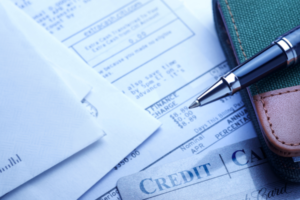|
Getting your Trinity Audio player ready...
|
The terminology in card payments can be mind-boggling at times, so this article explains Card Payment Contract Must-Knows – key terminology that you should understand before signing up with a new card payment contract.
Interchange fees
This is a fee charged by the Card Issuer’s Bank for authorising the transaction. It checks there are sufficient funds available on the customers card.
The interchange fees can range from 0.2% to 0.3% on personal debit and credit cards issued in the UK. Cards issued overseas can carry much higher fees for a merchant: typically, between 1.15% and 3.5% depending on the issuing country and the card type i.e. debit, credit, or business.
Make sure you check all your interchange fees, especially if you are a business accepting a large number of international or corporate cards.
Scheme Fees
Think of the card payment process as a food chain. At the top is a Scheme i.e. Visa, Mastercard or American Express. The fee they charge is called a scheme fee. It varies depending on the type of the card, e.g Visa Personal Debit, Mastercard Personal Credit, Visa Business Debit. There are countless different card types, each with their own scheme fee. This typically ranges between 0.02% and 2%, again, depending on the card type.
Make sure you are aware of the different scheme fees for the cards you’ll be accepting, so you don’t get any surprises when your card charges bill arrives.
Acquirer / Processor
These are the organisations who record and process the card transactions either through a card payment terminal, a virtual terminal or e-commerce.
Paynetworx is not an acquirer or processor, we are an ISO. We work with several different acquirers to get the best deal for our merchants. Be aware of who your acquirer is as they will also be communicating with you directly.
Authorisation Fees
These are additional fees charged by Acquirers. The fees vary between different acquirers but usually range from 0 pence to 4.5 pence per transaction.
Check your authorisation fee, because 4.5 pence may not seem like a large amount for a transaction, but if your average transaction value is low, these authorisation fees are soon going to add up to a big bill.
Headline Rates
This is the basic rate charged as a percentage for accepting a card transaction before Intercharge and Scheme fees are added.
Blended Rates
This is an overall effective rate for card transactions, compromising Headline Rate, Interchange and Scheme Fees.
Refund Fees
Nearly all acquirers typically charge 50 pence as a flat fee to process a refund of any value.
CNP (Cardholder Not Present) Fees
Some (not all) acquirers levy a charge of between 0.1% and 0.7% for a transaction where the cardholder or, more accurately, the card is not present i.e. transactions taken over the phone.
You should note that nearly all transactions conducted where the card is not present will be at the merchant’s risk. If you are frequently taking CNP payments with your card terminal, we strongly recommend using a Virtual Terminal.
PCI DSS
This stands for Payment Card Industry Data Security Standard. Most acquirers charge a monthly PCI fee, and some acquirers do not charge. The PCI charge ranges from £3.50 to £4.99 a month. You don’t get anything for this fee other than access to a portal confirming you are PCIDSS compliant. This means you guarantee you are not storing any customer card data. Acquirers can and do add levy fines if the PCI compliance isn’t up to date. Visit our PCI article to find out more.
Be aware if an acquirer is not charging a monthly charge for PCI, this cost may be hidden within a minimum monthly service agreement but advertised as FREE PCI! Always ask the company if you are unsure.
Chargebacks
If a cardholder makes a valid request for a refund, for example an item that is not delivered of fault goods, and the merchant refuses to give a refund, the cardholder can request a chargeback from their card issuer. Chargebacks are also a primary method banks use to resolve credit card disputes. The chargeback fee is charged to the merchant to penalise them for processing an illegitimate transaction.
You can avoid chargebacks by having a clear refund and return policy, providing contact details in your company for dispute resolution etc.
Card Payment Terminals
You need to ensure you have the correct terminal that is suited to your business and how you choose to take payments. We divide terminals into three connectivity methods:
Countertop – This is a hard-wired static terminal that usually connects via WIFI. Payments are literally taken at a countertop, i.e. a convenience store. If you don’t have WIFI, this isn’t the terminal for you.
Portable – These are portable terminals that are connected with WIFI but can be moved around a business premise i.e. a restaurant taking payments at tables. Again, if you don’t have WIFI, this isn’t the terminal for you.
Mobile – Mobile terminals connect with WIFI but also have a sim card inside to connect with 4G/GPRS, just the same way as a mobile phone. These are idealfor taking payments in remote areas or on the go i.e. a delivery service. If the mobile signal is weak in your area, it can cause an issue, however, these is still the most versatile terminal.

Before you sign…
Make sure you check the terminal is right for your business. Some sellers may push you into a mobile terminal when it is not necessary for your business or connectivity and will result in a higher monthly terminal. Our Sellers always make sure you pick the right terminal.
This is the end of Card Payment Contract Must-Knows before signing. It’s important to know exactly what you’re paying for. There are always complicated terms within the card payment industry, but don’t let this trick you into hidden fees that get added onto your card bill. Before you sign your contract, you should be clear on what you’re paying for, so that when you do get your bill, you have a basic understanding of what you’re being charged for.
If you’re not sure what a charge relates to you should after reading this Card Payment Contract Must-Knows, raise a query with the issuer of the statement at the earliest opportunity. If you don’t raise a query, the charge will continue so if you’re not sure, make sure you ask.
And lastly, there can be large differences in pricing between acquirers and terminal suppliers. If a deal looks too good to be true, then it probably is too good to be true!
